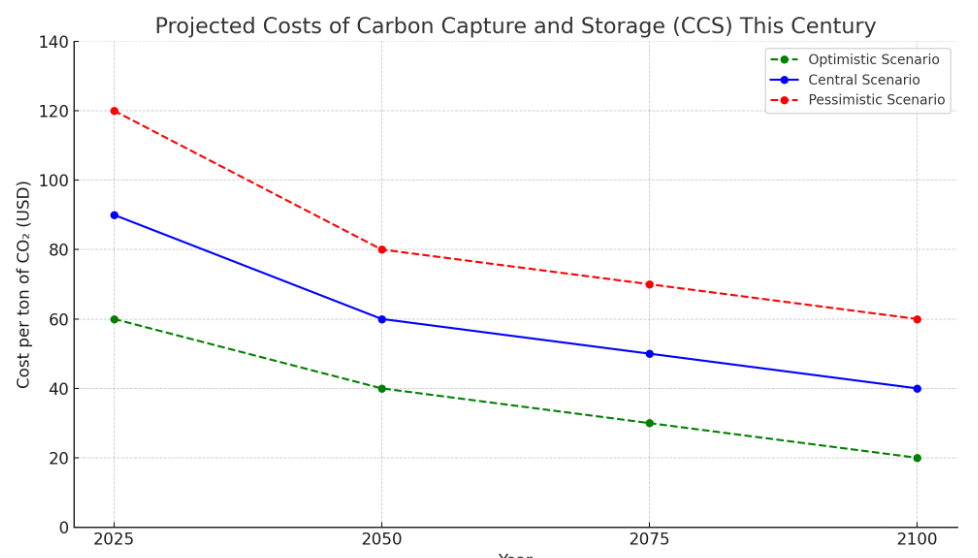
The expected cost of Carbon Capture and Storage (CCS) this century depends heavily on the application (e.g., power plants, cement, steel), technology type, and geographic factors. Here's a breakdown by timeframe, application, and estimated cost per ton of CO₂ captured and stored:
Power Plants (coal/gas):
$40–$120/tCO₂
Industrial (cement, steel, hydrogen):
$60–$150/tCO₂
Bioenergy with CCS (BECCS):
$100–$200/tCO₂ (but with potential for net-negative emissions)
Direct Air Capture with CCS:
$600–$1,200/tCO₂ (as seen before)
Assuming broader deployment, policy support (like carbon pricing), and learning-by-doing:
Power sector CCS:
$30–$80/tCO₂
Industrial CCS:
$50–$100/tCO₂
BECCS:
$80–$150/tCO₂
DAC with CCS:
$200–$400/tCO₂
Power sector CCS:
$20–$60/tCO₂
Industrial CCS:
$40–$80/tCO₂
BECCS:
$60–$120/tCO₂
DAC with CCS:
$50–$200/tCO₂ (in highly optimistic scenarios)
Capture technology: Post-combustion, oxy-fuel, pre-combustion all have different costs.
Concentration of CO₂: Cheaper to capture from high-purity sources (e.g., natural gas processing).
Transport & Storage: Proximity to geologic storage lowers cost (~$10–$20/tCO₂ typically).
Infrastructure: Costs drop with integrated CCS hubs, pipelines, and economies of scale.
Regulation & policy: Carbon markets, tax credits (e.g. 45Q in the U.S.), subsidies reduce effective costs.
IEA CCS Technology Roadmap (2023)
NASEM (2021) – Long-term decarbonization pathways
IPCC AR6 WG3 (2022) – Cost ranges across applications
Global CCS Institute (2023) – Project case studies and cost benchmarking